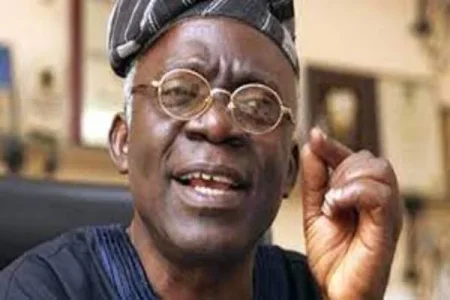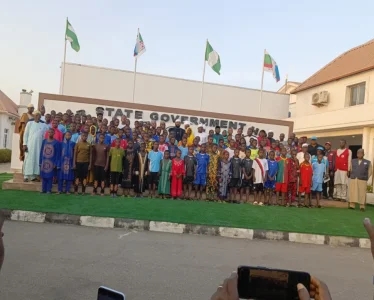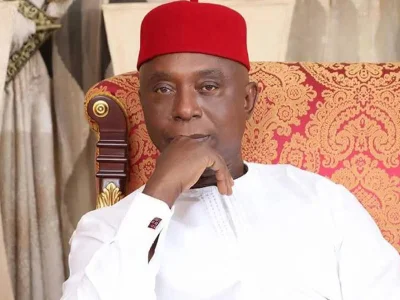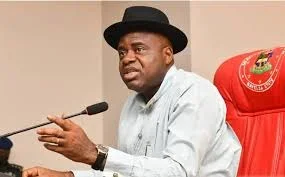
Femi Falana criticizes President Tinubu's declaration of a state of emergency in Rivers State, citing contradictions with past opposition. Falana questions the legality of removing state executives and challenges legal experts to provide constitutional backing for the president’s actions. He also highlights concerns about Nigeria’s economy.
Human rights lawyer Femi Falana has raised concerns about President Bola Tinubu's recent imposition of a state of emergency in Rivers State. Speaking at a webinar titled “Civilian Coup? Tinubu’s State of Emergency in Rivers,” Falana pointed out what he sees as a contradiction between Tinubu’s current actions and his past stance as the governor of Lagos.
Falana recalled that during the administration of former President Olusegun Obasanjo, Tinubu had strongly opposed any declaration of a state of emergency in Lagos, particularly amid the Odua People's Congress (OPC) crisis. Tinubu had even threatened that Lagosians would reject any such move, firmly standing against federal interference in state governance. Similarly, Nyesom Wike, the current Minister of the Federal Capital Territory (FCT), was vocal in resisting similar proposals during the 2019 election crisis in Rivers.
The lawyer questioned how these two individuals—both of whom fought against federal intervention in their states—are now endorsing a measure they once resisted. "What has happened between then and now that these two individuals are promoting what they once firmly stood against?" Falana asked, pointing to the role both Tinubu and Wike played in resisting such moves during their tenure as governors.
Falana further criticized the legality of the president's actions, noting that while Section 305 of Nigeria’s Constitution gives the president the authority to declare a state of emergency, it does not grant the president the power to remove elected state executives. He raised concerns about the constitutionality of the president’s ability to dismiss Rivers State Governor Siminalayi Fubara, especially given that the Supreme Court recently ruled that governors do not have the authority to dismiss local government officials without due process.
Falana challenged legal professionals who support the president’s actions to provide clear constitutional backing for the president’s powers to remove state executives. "Where is the president deriving his power to sack the Rivers State governor from?" he asked.
In addition to his legal criticisms, Falana also weighed in on the state of the Nigerian economy. He expressed concern over the government’s attempts to present a positive image of the economy while the figures suggest otherwise. Falana emphasized that discussions on the economy should receive as much attention as political matters, urging stakeholders to scrutinize the budgets of state governments, which often have a significant impact on the population.
The webinar, which was co-hosted by Nigerian-American professor Farooq Kperogi, aimed to examine the constitutional and political implications of Tinubu’s state of emergency in Rivers State. The event focused on the potential risks such a move poses to Nigeria’s democratic processes.




